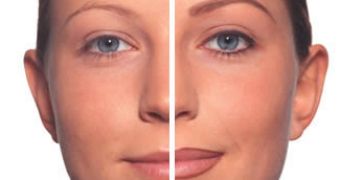If you're young and healthy, permanent makeup - also known as "micropigmentation" - has probably never crossed your mind or, if it has, it was a thought you quickly dismissed. After all, having permanent eyeliner etched around your eyes does limit your ability to experiment and play with various nuances, textures and styles, and the joys of applying makeup are all but gone.
However, if you happen to suffer from a condition such as cataract or even arthritis that prevents you from applying makeup by yourself safely and nicely, permanent makeup might be just what you're looking for. Of course, you can also resort to it if you're looking to improve certain features on your face without going under the knife. For instance, micropigmentation can be an option in the case of thin eyebrows or lips, which can be corrected and improved with a little help from this procedure.
A word of caution, though: permanent makeup is not going to leave you looking like Angelina Jolie dressed up for the Oscars every day. It's a compromise of sorts, a middle solution to help us improve our self-image without becoming frustrated with some of our features, but just don't expect to make everything perfect. How does it work? Pretty much like getting a tattoo, the difference being that it's done in a doctor's office and under local anesthesia.
The procedure will be performed using either an instrument that resembles a pen, or a standard tattoo gun, and it will not take more than 20 to 30 minutes. After the operation, an antiseptic will be provided to you to help maintain a rigorous hygiene of the treated region. You will be able to go home then, but your health should be closely monitored over the next few days to prevent any infections or other adverse reactions.
Expect swelling around the treated regions of your face - with a little help from some mild painkillers and some ice, it will gradually go away. Depending on the area of the face on which you're getting the makeup, you may need more than one treatment. Finally, your new makeup will not actually last forever. Over the years, pigments fade and, in a few years' time, you will probably need additional treatments to maintain your new look.

 14 DAY TRIAL //
14 DAY TRIAL //